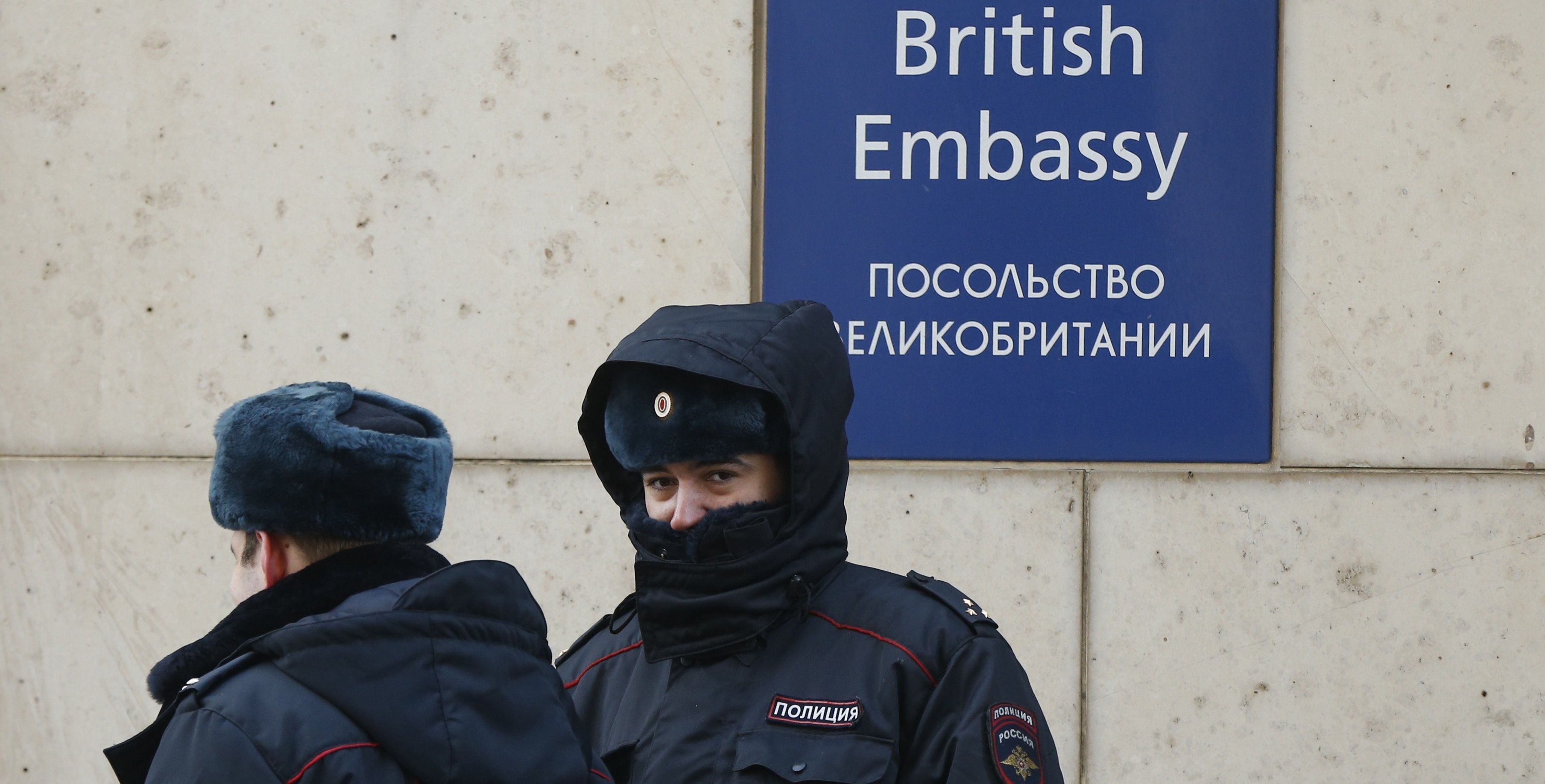Notable among dissenters from NATO’s proxy war with Russia in Ukraine have been former Western ambassadors such as Jack Matlock and Chas Freeman in the United States, Britain’s Tony Brenton, and Tony Kevin in Australia — dissident voices that are needed more than ever amid fevered lobbying for yet further escalation of the conflict.
A very welcome addition to their ranks is Ian Proud, economic counsellor in the British Embassy in Moscow from 2014-2019. A highly experienced diplomat, Proud served in Thailand and Afghanistan, organized the G8 summit in Belfast in 2013 and, in 2022, retired from the Foreign Office as Vice Principal of its International Academy — the body charged with the foreign-language training of British diplomats. Perhaps his finest hour was the part he played in the smooth running of the football World Cup in Russia in 2018, when tens of thousands of English soccer fans descended on Moscow and other match venues.
Unlike the vast majority of his colleagues in Moscow, Proud took the trouble to learn Russian and to travel the country far and wide, meeting officials, politicians, academics, students and ordinary people.
A self-professed “realist,” Proud believes the core purpose of diplomacy is to manage relations between states and to prevent conflict. In Moscow, according to his memoir published late last year, “A Misfit in Moscow: How British Diplomacy in Russia Failed, 2014-2019, he was appalled by the “utmost folly” of attempting to resolve “disputes with Russia through isolation and cancellation.”
An admirer of Margaret Thatcher, Proud is no Russophile or starry-eyed Putin admirer. He was perfectly willing to “roger” the Russians if it served a useful purpose: when the Skripals were poisoned in 2018 he hatched a plan to collapse Russia’s diplomatic representation in the UK. Many Russian diplomats were expelled from London and other Western capitals but, thankfully, there were no takers for Proud’s proposed escalation of the tit-for-tat.
However, in general, Proud advocates engagement and the search for mutual understanding as a far more effective policy. While some Western powers — France, Germany and the United States — continued to make such efforts during Proud’s time in Moscow, the British government opted for “megaphone diplomacy” and to talking with other countries about Russia rather than to the Russians themselves. “You can’t be friends with everyone,” comments Proud in “A Misfit in Moscow”, “but real diplomacy involves talking to those you disagree with the most.”
After the eruption of the Ukraine crisis in 2014. London’s mantra was that Russia had to be punished for its transgressions and there could be “no return to business as usual.” Though, as Proud recalls, there was one British Foreign Secretary who favoured positive engagement with the Russians – Boris Johnson.
As the economics attaché, Proud had responsibility for monitoring the impact of Western sanctions on Russia. For the Brits, those sanctions soon became an end in themselves rather than a policy tool. Proud ‘s economically illiterate colleagues did not want to know when he warned sanctions had inspired a successful Russian drive to economic nationalism and self-sufficiency. Especially important was the way Moscow weathered the monetary instability caused by a combination of Western sanctions and reduced energy prices. By the time Putin invaded Ukraine in February 2022, Moscow was well able to contain the West’s tawdry efforts to destabilize the ruble and collapse the Russian economy.
The most spectacular example of the British blundering concerned implementation of the Minsk agreements. This was the deal that curtailed (but did not end) the civil war between the Kyiv government and the pro-Russia Donbass separatists. Brokered by France and Germany, the agreed compromise was that Ukraine would regain sovereign control of the Donbass in return for granting it constitutionally guaranteed regional autonomy. In effect, the agreement would get Russia out of the Donbass but also give the rebels a veto on the country’s membership of NATO — something Ukraine’s ultra-nationalists were never going to accept.
As Proud relates, UK leaders in London had contrived to exclude themselves from the negotiations that led to Minsk, which meant the British played little or no role in the various efforts to find ways to implement the agreements. The one major British contribution to the sorry tale of the failed Minsk agreements was to persuade the EU’s European Council to agree that sanctions against Russia would not be lifted until Minsk had been fully implemented. Kyiv was delighted, and was further incentivized to stymie the implementation of Minsk as a means of locking in Western sanctions against Russia.
Proud claims that Moscow had to real interest in implementing Minsk either, but it seems to this reviewer that the public record shows Russia was probably the only party to those agreements acting in good faith. Certainly, in run-up to the Russian invasion, Putin was incessant in his insistence that implementation of Minsk was the only way to resolve the Ukrainian crisis peacefully.
Proud’s book was vetted by the Foreign Office prior to publication but the resultant cuts do not detract from its value as both a memoir and a critique of British policy towards Russia.
Since publication the author has been highly active on alternative media platforms as a critic of the West’s role in the Ukraine war. As he says in the book, if the West is unwilling to itself fight Russia, it needs to push for a ceasefire and help Ukraine to negotiate a just peace.
It’s a great pity more of his diplomatic colleagues didn’t, and still don’t, see it that way, too.
- Why aren't we talking about Russia almost downing a UK spy plane? ›
- What’s behind Britain’s aggressive posture against Russia? ›
- John Sullivan: Biden’s Failed Diplomat in Moscow | Responsible Statecraft ›
















